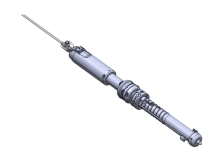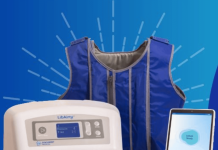The French Authority for Health has issued a positive opinion to fund Carthera’s SONOBIRD study evaluating its blood-brain barrier opening implant SonoCloud-9.
The funding will be made available through the Forfait Innovation programme, a framework that aims to bring devices to market quicker for French patients.
Related: InspireMD brings in $17.9M to support stent trial
Carthera will now meet with the French Ministry of Solidarity and Health to discuss budgets, which will go towards the French study sites for the international trial.
The SONOBIRD study is an open-label, comparative, and randomised trial evaluating the overall survival in recurrent glioblastoma patients undergoing carboplatin chemotherapy with aid from the SonoCloud-9 system.
The implant uses low-intensity pulsed ultrasound (LIPUS) to temporarily open the blood-brain barrier, which usually prevents many therapeutics from penetrating in sufficient concentration to the brain tissue.
Carboplatin, although effective against tumours, has limited penetration through the barrier when administered using intravenous routes. Carthera aims to boost concentrations of the drug in the brain using its implant.
Using ultrasound to temporarily open the blood-brain barrier isn’t completely new and its use is well documented in treating neurodegenerative conditions. What sets Carthera’s technology apart from methods currently in use is the implantable nature of the device.
Patients receiving carboplatin chemotherapy with the SonoCloud-9 system will be compared to those receiving standard-of-care lomustine or temozolomide.
The trial will also evaluate the effectiveness of the French company’s device and chemotherapy in delaying or slowing tumour growth.
The French company, which secured €37.5m ($41m) in Series B financing in June2023, has already demonstrated the clinical potential of its technology, a pre-requisite of Forfait Innovation funding. Results from a Phase I/II trial showed an overall survival rate of 58%, with a median overall survival of 14 months from surgery. The normal span for patients living with glioblastoma is around 9-11 months.
Glioblastoma is one of the most treatment-resistant cancers, causing more than 15,000 deaths a year in the EU.
Carthera’s CEO Frédéric Sottilini said: “We are delighted with this positive opinion from the HAS, which demonstrates real support in finding more effective treatments for glioblastoma patients in France. This is another important step in our project to rapidly make blood-brain barrier opening with SonoCloud available to patients with glioblastoma and offer new therapeutic options.”




